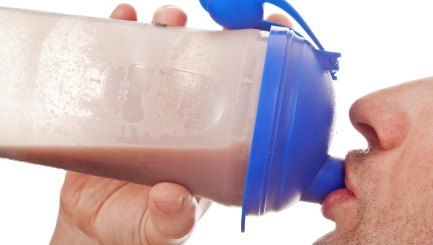Do you know why you need protein for training and what types of sporting activities require more protein?
Written by Rebecca Evans Accredited Dietitian and Sports Dietitian – Eat Smart Nutrition Consults within Gold Coast Physio & Sports Health
Exercise can increase the body’s protein requirements through a few mechanisms:
 Protein plays a role by acting as building blocks for muscle growth (hypertrophy) following resistance training
Protein plays a role by acting as building blocks for muscle growth (hypertrophy) following resistance training
Provides amino acids for muscle repair (turnover) following damage caused by exercise
Plays a role with providing the body with fuel for exercise (although this is something you really don’t want to happen as your Carbohydrates and Fatty acids are your body’s first choices and safe choice. If you use protein to fuel your body you can be breaking down muscle tissue which is not ideal for any sport)
Each sport, physical activity, phase of training for an athlete, athlete age and a woman’s status in pre/ peri or post-menopause or exercise enthusiast can influence how much protein they require daily. For instance those starting a resistance training program (early training) require approximately 1.5-1.7g/kg/day of protein compared to those who are in a ‘steady state’ of resistance training (after the initial 3-4 weeks of a program) who only require 1.0-1.2g/kg/day of protein.
 Other sports and physical activities that may surprise you with the amount of protein they require are those who do endurance events. Elite endurance athletes actually need approximately 1.6g/kg/day of protein, moderate-intensity endurance athletes that train for approximately four to five times per week for 45-60mins require 1.2g/kg/day of protein (just as much as those who are doing resistance training).
Other sports and physical activities that may surprise you with the amount of protein they require are those who do endurance events. Elite endurance athletes actually need approximately 1.6g/kg/day of protein, moderate-intensity endurance athletes that train for approximately four to five times per week for 45-60mins require 1.2g/kg/day of protein (just as much as those who are doing resistance training).
The highest protein requirement for a sport are the athletes that play football or power sports. Their protein requirements are from 1.4-1.7g/kg/day due to the high intensity training sessions, resistance training and the games themselves with the hard hits.
It is important to note that females actually don’t require the same amount of protein for each of the above sports, even if they are doing the same amount of training. There are differences in female body composition, female bodies requirements and effects of hormones so women should not be recommended the same as men.
And then there is the importance of “timing” your protein intake. For some athletes and active people, the timing of when you ingest the protein is also critical for helping you achieve the desired outcomes.
If you need guidance and support around getting this information right just for you, the Eat Smart Dietitian & Sports Nutritionists are available for consult at our clinics each week, with bookings essential by dropping in to clinic or phone 07 5500-6470.
Happy Training!
